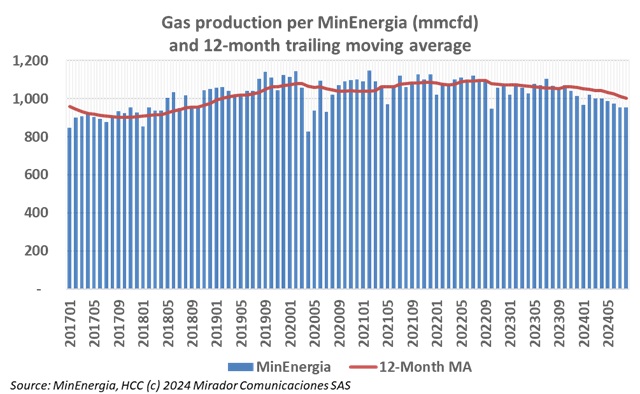Colombian Finance Minister (MinHacienda) Ricardo Bonilla appeared before the Senate’s Commission IV to introduce a new tax reform bill, known as the “Financing Law.”
At the beginning of October, the oil and gas industry held its annual three-day summit, this time in Cartagena. Overlapping slightly, the Petro government also held a three-day summit called Feria de las Economias para la Vida (Economies for Life Fair) or FEV. The President and the Minister of Energy at least seemed to position it as the opposite of the Oil and Gas Summit.
Ecopetrol (NYSE: EC) has become a driving force for regional development through its focus on sustainability and social responsibility.

Luz Stella Murgas, President of the National Association of Natural Gas (Naturgas), issued a stark warning.
Following a recent meeting, Colombia’s governors, organized under the National Federation of Departments (FND), called on the national government to review the new formula for the General System of Royalties (SGR) budget for the 2025-2026 period.
The Inspector General’s Office (PGN) requested that the National Environmental Licensing Agency (ANLA) lift the suspension of the environmental licensing process for the Komodo-X1 offshore hydrocarbon exploration drilling project, located in the COL-1 block of the Caribbean Sea.
Seven years ago, Colombia celebrated what was hailed as the country’s largest natural gas discovery in four decades.
In its ruling C-420, Colombia’s Constitutional Court upheld the corporate income surtax imposed on the mining and energy sector, as established in the 2022 tax reform.
Nelson Castañeda, president of the Colombian Chamber of Oil, Gas, and Energy Goods and Services (Campetrol), outlined five key pillars that the industry hopes to implement in collaboration with the government and local authorities.
Energy experts and industry associations have been warning for months about the potential gas shortage Colombia may face starting in 2025. Concerns arise as projections show a deficit in natural gas supply, causing many to question the government’s management of this critical issue and its plans to ensure energy self-sufficiency.